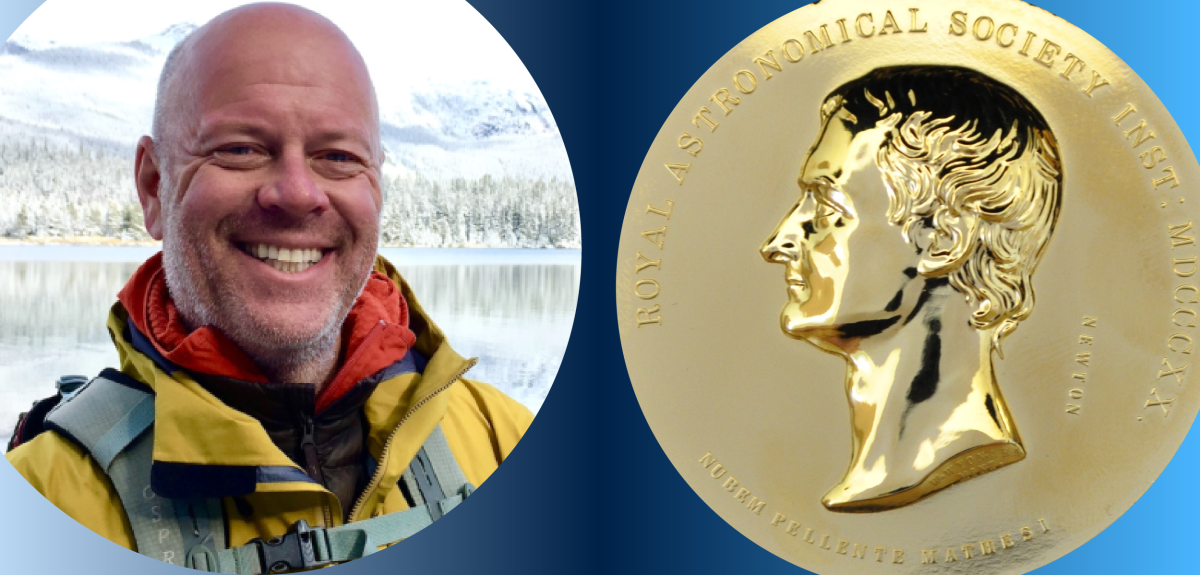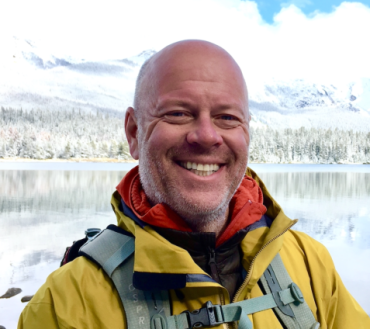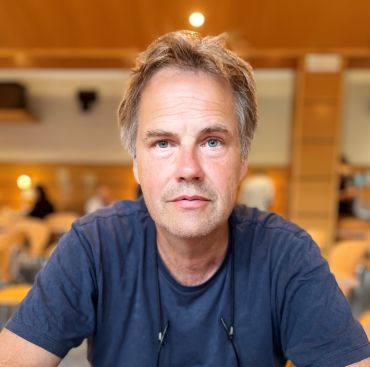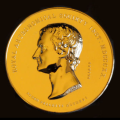
Professor Mike Kendall wins Royal Astronomical Society’s Gold Medal
Head of Oxford University’s Department of Earth Sciences, Professor John-Michael Kendall, has today been awarded the 2024 Gold Medal for Geophysics from the Royal Astronomical Society (RAS). The award recognises his outstanding work in the field of seismology (the study of earthquakes and seismic waves in the Earth’s interior) and for his support for the next generation of seismic researchers.

Professor Kendall’s research covers both pure and applied seismology and involves a range of geological settings. His work spans the full breadth of the discipline, from placing constraints on structures at the base of the Earth’s mantle, to setting standards in seismic monitoring in industrial applications.
His current research reflects his keen interest in addressing the world’s energy demands including sustainable natural resources. Recent projects have included searching for geothermal energy and critical minerals held in volcanic brines. He also actively works on seismic methods for monitoring the geologic storage of CO2 as a means of reducing greenhouse gas emissions.
I am thrilled to be awarded this medal and I am grateful to the UK geophysics community for all of the support and collaborations – it has been a privilege to work with so many talented researchers. I have been fortunate to work with a large number of early career scientists, many from developing countries.
Professor Mike Kendall, Department of Earth Sciences, University of Oxford
One of Professor Kendall’s most significant contributions to the field of seismology is the study of seismic anisotropy (directional variations in seismic wave speeds and polarisations), which has led to new insights into the nature of the Earth’s plate boundaries in a range of geologic settings. He has worked in Africa for over 20 years, studying most aspects of continental rifting. His fieldwork has involved some of the hottest and coldest environments on Earth, often deploying new technology such as seismic nodes and fibre optic cables as distributed acoustic sensors.
In addition, Professor Kendall has been instrumental in building the careers of many doctoral students and early career researchers. He has graduated 37 PhD students during his career, currently supervises another 7 and has worked with 28 postdoctoral researchers.
Reflecting on his award, Professor Kendall said ‘I moved to the UK from Canada in 1995, thinking I would be here for 2-3 years. A series of great students and the ability to work on a wide range of research topics has kept me in the UK. It is an ideal environment to collaborate both nationally and internationally, and I have especially valued interactions with other European scientists.’

Professor Ferreira said: ‘I am deeply honoured that the RAS have considered me for this award. I have been fortunate to work in cosmology, a topic that has really soared during my academic lifetime. I have been carried along by the vibrant intellectual environment in Oxford Physics and have had incredible joy working with my junior collaborators, who are, really, the backbone of my research.’
The full list of 2024 award winners can be found on the Royal Astronomical Society website.
 Oxford launches first human aerosol TB challenge trial
Oxford launches first human aerosol TB challenge trial
 Rees Centre report reveals challenges faced by Black and Asian kinship carers
Rees Centre report reveals challenges faced by Black and Asian kinship carers
 Expert Comment: The Modern Slavery Act at 10 – what have we learnt for human rights?
Expert Comment: The Modern Slavery Act at 10 – what have we learnt for human rights?
 Professor Tim Palmer wins Royal Astronomical Society’s Gold Medal
Professor Tim Palmer wins Royal Astronomical Society’s Gold Medal